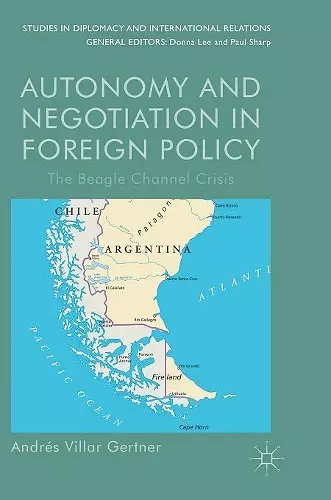Autonomy and Negotiation in Foreign Policy
The Beagle Channel Crisis
Format:Hardback
Publisher:Palgrave Macmillan
Published:13th Oct '16
Currently unavailable, and unfortunately no date known when it will be back

This book provides a unique view on the Beagle Channel crisis (1977-1984) between Argentina and Chile by examining it in a global political context. The author explores the factors which led from imminent conflict to signing the Treaty of Peace and Friendship in just six years. Regional and international dimensions of the Beagle crisis are given particular attention, including international arbitration, the participation of the Vatican as a third actor, the role of the US, the complicating effects of the Falkland war, and the relations between each party and the UK. The author highlights unequal effects on Argentine and Chilean foreign policies of domestic structures and international conditions. The book seeks to determine the extent to which foreign policy provides opportunities for states to exercise political autonomy, given the powerful constraints imposed by the multiple structures of the international system, and how negotiation behaviour generated the path from conflict to cooperation between Argentina and Chile. The author’s focus on foreign policy aids the understanding of processes and decisions within Argentina and Chile during the Beagle crisis while utilising new theoretical approaches in the field of negotiation behaviour in Latin America.
ISBN: 9781137572745
Dimensions: unknown
Weight: 3796g
193 pages
1st ed. 2016